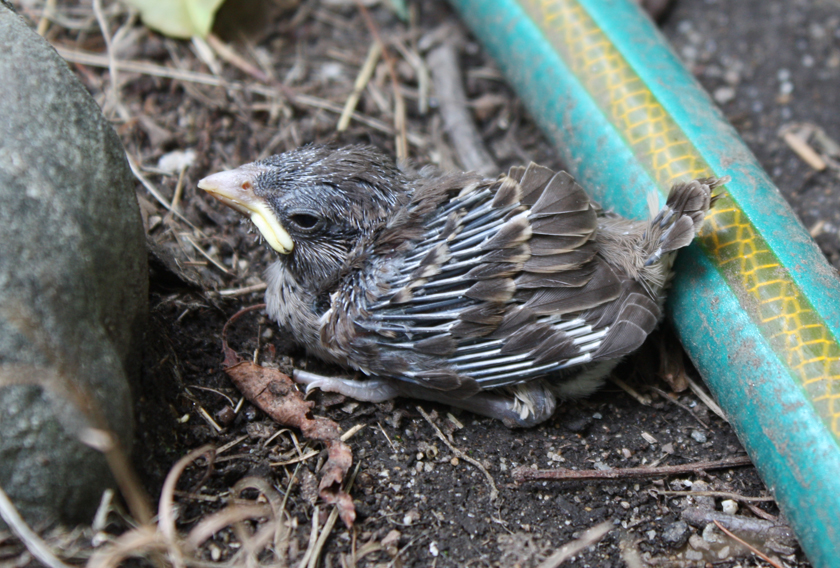
The baby robins will never return to this nest. This webpage shows average clutch size incubation and nestling period for a number of backyard birds.

During that time they more than quadruple in size developing feathers and the wing muscles they will need for survival outside the nest.
How long do birds stay in the nest before they fly away. How long until the young ones leave the nest. The length of time varies from species to species. This webpage shows average clutch size incubation and nestling period for a number of backyard birds.
Note these are averages and actual numbers vary depending on location and time of year. Why do birds leave the nest before they can fly. Its to some young birds advantage to leave the nest as soon as they can.
People tend to think of nests as safe cozy little homes. But predators have a pretty easy time finding a nest full of loud baby birds and nests can be hotbeds for parasites. So parent birds work from sunrise to sunset.
Control nests fledged at normal age 11 to 12 days whereas enclosed nests prevented young from leaving for 3 days after fledging naturally to. In addition to all the great answers here birds avoid parasite buildup by moving around. Bcause they stay in one place for weeks baby birds may have a lot of lice which helps push them to leave the nest.
Getting too big to fit helps too. Young garden birds or fledglings usually leave the nest two weeks after hatching and during this vulnerable period of their lives they are fed on the ground by their parents. Tawny owl fledglings are even able to climb back up to their nests on their own.
Most of the birds are not orphans. The baby robins will never return to this nest. Nests for most birds are NOT houses at alltheyre just baby cradles.
Now the babies will start sleeping in sheltered tree branches as adult robins do. See the next Robin Nest Photo Lesson and discussion of todays questions. How long does it take for a Robin to hatch and leave the nest.
It takes the babies about 2 weeks to leave the nest. The chicks are ready to fledge at 13-14 days but if the nest is disturbed they can leave and survive as early as nine days old. This ability to fledge early is an important anti-predator adaptation.
The young birds creep and flutter from the nest and remain in nearby cover for the following few days. Young birds will occasionally return to their nests for several days seeking handouts from their parents but after a few days they will move on and no longer visit the nest. Wear gloves when handling the nest to protect against contamination from mites bacteria or other parasites that may have infected the nest.
The researchers also found that under artificial conditions in which they forced some parents to keep their young in the nest for a few extra days the. Birds tend to leave once they are fully grown. But during their growth period they stay with their parent birds.
Northern cardinals are amongst the most welcomed backyard songbirds which are thought to be a good omen. Like a hummingbird cardinals are most likely to build their nests in quiet secluded places like dense shrubs and heavy thickets. Having distinct features and characteristics.
Once the baby birds hatch they spend another two weeks in the nest before they are ready to leave although different species often have different incubation and fledgling periods. Fledgling pigeons remain in the nest until they are almost fully grown. By the time the young birds leave the nest they are often bigger than their parents.
Newly fledged robins usually take cover on the ground after leaving the nest. They need about two weeks to become capable of sustained flight. During this time they follow their parents and beg them for food.
Following this period they stay near the home nest for another four months. Robins are altricial birds meaning that they are hatched in an. Baby robins are ready to fledge leave the nest when theyre 13-14 days old.
One evening two weeks after 2 of the 3 eggs hatched the 3rd never did our. It could take 4-5 days before they are done laying all their eggs and during that time period they dont need to sit on the nest. Some adult birds may even intentionally stay away from the nest for long periods before incubation so that they dont draw attention to the nest location.
Once hatched blue tit chicks spend around three weeks in the nest before fledging. During that time they more than quadruple in size developing feathers and the wing muscles they will need for survival outside the nest.